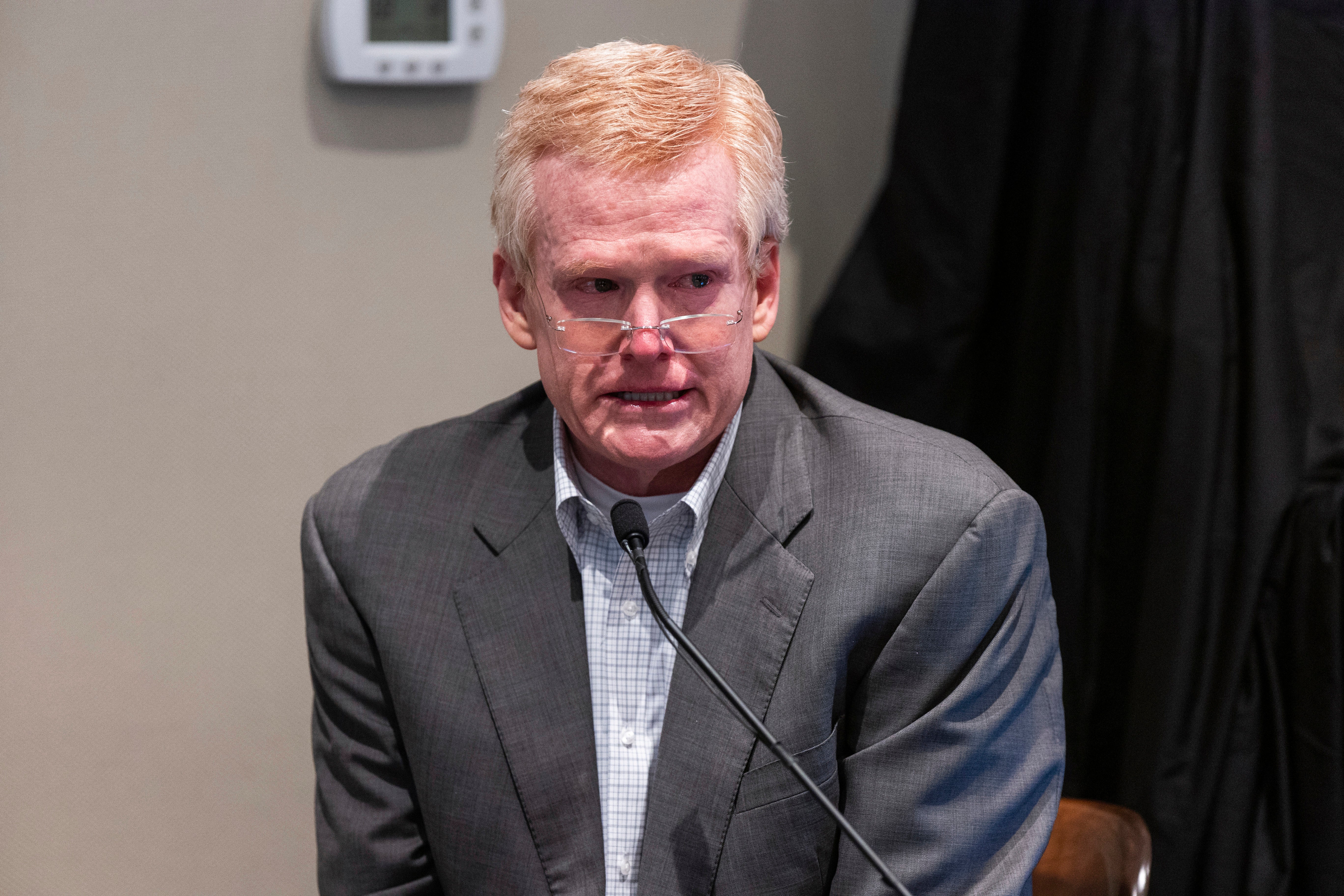Will Alex Murdaugh’s dodgy memory bring him down?
On the stand at his murder trial, Alex Murdaugh was able to remember a mountain of tiny details — but was at a loss for a few key big ones. Holes in his memory could now prove pivotal in the jury’s verdict


Alex Murdaugh’s fate is now in the hands of a jury that will determine his innocence or guilt in the murders of his wife Maggie and son Paul. Needless to say, the panel of 12 jurors has a big job ahead following six weeks of astonishing testimony from 75 witnesses.
Having followed the courtroom circus in the most minute detail from our New York newsroom, there’s no doubt in my mind that the verdict will hinge on one witness: Murdaugh himself.
Murdaugh’s two-day stint on the witness stand began with a defiant declaration that he did not fatally shoot Maggie and Paul. He continued to make several confessions, from admitting he lied about being at the scene of the murders minutes before they occurred to acknowledging that he stole millions of dollars from his law firm clients.
Murdaugh was able to remember a mountain of tiny details — but was at a loss for a few key big ones.
He walked the jury through the final day he spent with his son “Paw Paw” riding around the family’s sprawling estate, how they stopped by the duck pond and marveled at growth in the corn fields. He described wrestling a chicken away from his dog Bubba’s mouth in an incident that has become central to the trial because video filmed by Paul proved Murdaugh was at the scene minutes before the killings. He even remembers the exact moment that, while driving to his parents’ house on the night of the murders, he stopped his car to retrieve his phone from in between the seat and the console.
Most striking on the list of things Murdaugh couldn’t remember was what he and his wife talked about the last time they spoke, just minutes before prosecutors say she and her son were shot dead.
He also struggled to remember exactly what he told dispatchers in his 911 call — despite having listened to recordings of the call multiple times over the course of the trial.
Prosecutor Creighton Waters seized on the disconnect in Murdaugh’s ability to remember certain things but not others during an intense cross-examination. Asked what he did with his phone when he arrived home from his day out with Paul and went to take a shower, Murdaugh said he wasn’t sure.
Waters pounced, citing Murdaugh’s “very specific recollection” the day before about the phone slipping under his car seat. “Mr Waters, those are two distinct, different things,” Murdaugh replied before stumbling through an explanation of why he doesn’t remember exactly where he put his phone at the house.
Waters accused Murdaugh of giving “awful specific” recollections when he needs to make his story fit with data already presented to the jury, adding: “But you’re awful fuzzy on the far more important things, aren’t ya?”
Murdaugh repeatedly attributed any holes in his memory to his opioid addiction, while being unable to explain why the drugs affected some memories and not others. In his closing argument for the defense, Murdaugh’s attorney Jim Griffin emphasized that misremembering things doesn’t prove anything.
Those convinced of Murdaugh’s guilt will find it easy to conclude that his entire story is rehearsed — just not quite well enough. The son of a legal dynasty that has controlled a slice of South Carolina for almost a century, he likely feels at home in a courtroom.
But watching Murdaugh struggle to explain his story under fierce questioning from a relentless prosecutor, I have to wonder: How would I handle being in his shoes?
To be sure, I don’t ever expect to find myself accused of murdering my spouse and child. But how much would I, or any average person, remember of such a traumatic event nearly two years down the road — with the added pressure of retelling my story in front of a jury that will decide my fate?
Of course, there is no shortage of clinical research on the impact of trauma on memory. According to the National Institute for the Clinical Application of Behavioral Medicine, trauma is known to impact four different types of memory. In layman’s terms, those are: memory of general knowledge, memory of specific events, memory of emotional response to an experience, and memory of how to perform common tasks without actively thinking.
Researchers have been able to parse the specific ways memory can be affected, differences between types of trauma, where in the brain the effects originate, and many other facets of the subject. What remains impossible to determine, though, is how or to what degree any given trauma will impact any given person or their memory.
We don’t know how the murders of his wife and son would have affected Murdaugh’s memory — whether or not he pulled the trigger — and we never will.
But the jury’s perception of Murdaugh’s retelling of that night, as flawed as it may have been, could very well decide his fate.
